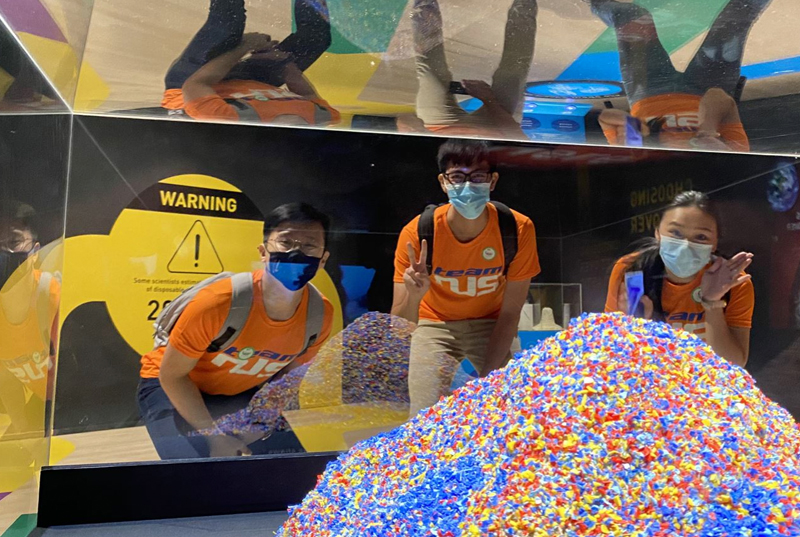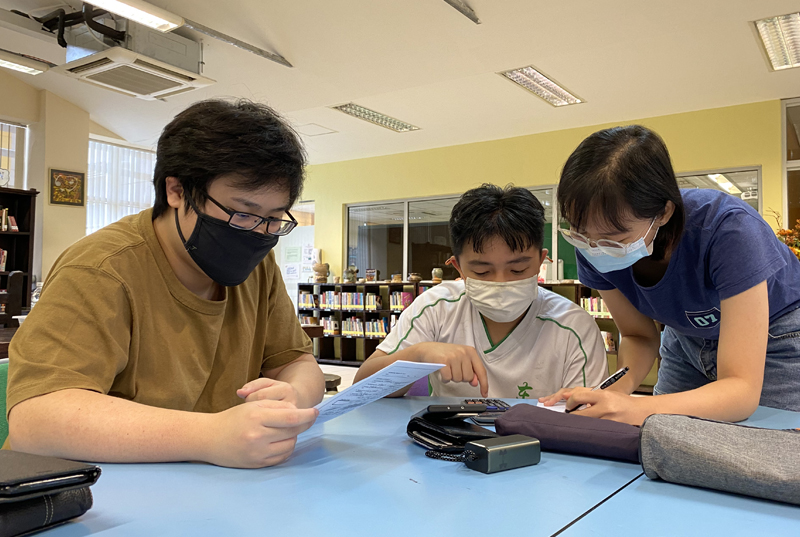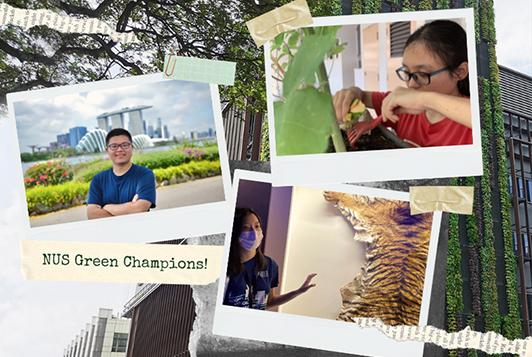Teach Singapore (Teach SG) Cycle 3 recruitment commences today for student volunteers to sign up to be part of something larger than themselves. Be part of this larger community of student mentors today and spread your wings this new semester.
We hear from three student mentors from Teach SG, Daryl, a Year 4 Biz Finance and Economics student, Lou Su Kuan and Gan Jia Xin, both Year 1 students from NUS Business School and NUS Life Sciences respectively who volunteers at Tanglin Secondary School. They share salient points on what’s it like to become student mentors.
OSA: Why did you choose to join Teach SG as a student mentor?
Daryl (D): Volunteering is a way for me to pay it forward. To me, volunteering epitomises what it means to be in the community. and contribute to a community that is wider than myself. I've been really blessed with a lot of opportunities from the social structures and different people that come into my life.
Su Kuan (SJ): If I’m able to become a mentor, I'll be able to pass on my skills or my personal experiences to someone who is younger than me. And it may be more helpful to them as well.
Jia Xin (JX): I volunteer because I wanted to give back just like how I've received help earlier when I was younger!
OSA: What makes volunteering at Teach Singapore a unique experience?
D: We have one hour of academic mentoring and one hour of life skills and bonding. I think that this holistic structure is important because it sends the correct message to the students that while academic excellence is important to some extent, [and] they should not be defined by these things.
And I think the wider lesson we can get is that the school-based education system is not merely about content mastery per se but it’s about teaching resilience, it’s about teaching teamwork and collaboration skills even as they learn alongside their classmates, even as they struggle through different difficulties. These are critical skills that will serve them well and enrich their lives in the future. Throughout the mentoring sessions, we have pockets of opportunities and the flexibility to speak into their lives too.
SK: The structure reminds these students that besides studying, one should learn to have fun during staggered free time. This in turn motivates the students to study harder too.
JX: Teach Singapore is unique in the sense that each of the mentors have a chance to plan out the activities every week. I had a whole new experience planning an outing from scratch! It’s also very flexible! Students can tell us what they want to do for the activities, if they want to play volleyball or other activities, and we can make the necessary changes. It is better than doing things the students may not like!

OSA: What have you learnt as a student mentor with Teach Singapore?
D: I have learnt how to better balance being a friend as well as a strong authoritative figure that the students would want to look up to. It is a difficult balance that was hard to strike initially but it gets better over time. The first one requires me to be genuine in befriending students and getting to know them. The second one requires me to be cognizant of the wider objectives in coming alongside them in a very practical and helpful manner.
SK: On the first day I came to Tanglin, I felt that my mentees were willing to share their stories with me such as the kind of difficulties they might be facing in school or in their families. I feel that this is an advantage that I can make use of to mentor them. I also learn to empathise better as I get to learn from my mentee's life experiences too. For example, my mentee is from band whereas I was always in a sports CCA. Recently he went to Singapore Youth Festival (SYF) and shared a lot of interesting experiences with me.
JX: I must be this caring figure but also maybe a figure that will be able to pass on knowledge to them as well. As we help the students with their work, they will tend to open more. The teachers also encouraged the students to ask us questions and this allows for more sharing and casual conversations.
OSA: How can one be an effective mentor?
D: "One of the critical components is to brush up on our hard skills and simply revise some of the content that we were teaching. I also reflected on some of my other volunteering experiences to really crystalise some of the takeaways that I’ve had so that I can be a more effective mentor.
The other component is soft skills which require me to be perceptive of the situation and adapt my approach so that the interactions with students can be very helpful. For example, different students tend to have vastly different personalities. And the way that I encourage and spur them on would be drastically different. In some cases, I’ll be challenging them. In other cases, I’ll be speaking little words of encouragement. This benefits the students that I'm working with!
SK: I feel that mindset is very important. Firstly, I need to have the mindset that this is a mentoring session, it's more than teaching, so that's my motivation as to why I am there. I need to be prepared to know what kind of knowledge I need to pass on to my mentees and the mindset to befriend them and listen to what they have to say.
JX: I learnt that a positive mindset is quite important. For example, my mentee can be quite negative because once he encounters some problem sums, he does not know how to do, he'll say "Oh, I'm just dumb." So at the start, I had to do some encouragement like "No, it's not because of that, it's just that you were careless over here." Encouraging words like this help my students gain a more positive mindset.
When the students ask us something, then we’d have to think on the spot and tell them what's the answer. And we have to really be enthusiastic to perk them up because they're very tired after school and I understand.
WATCH video interview with our student mentors and their mentees:

Share:
Contributor
Office of Student Affairs




